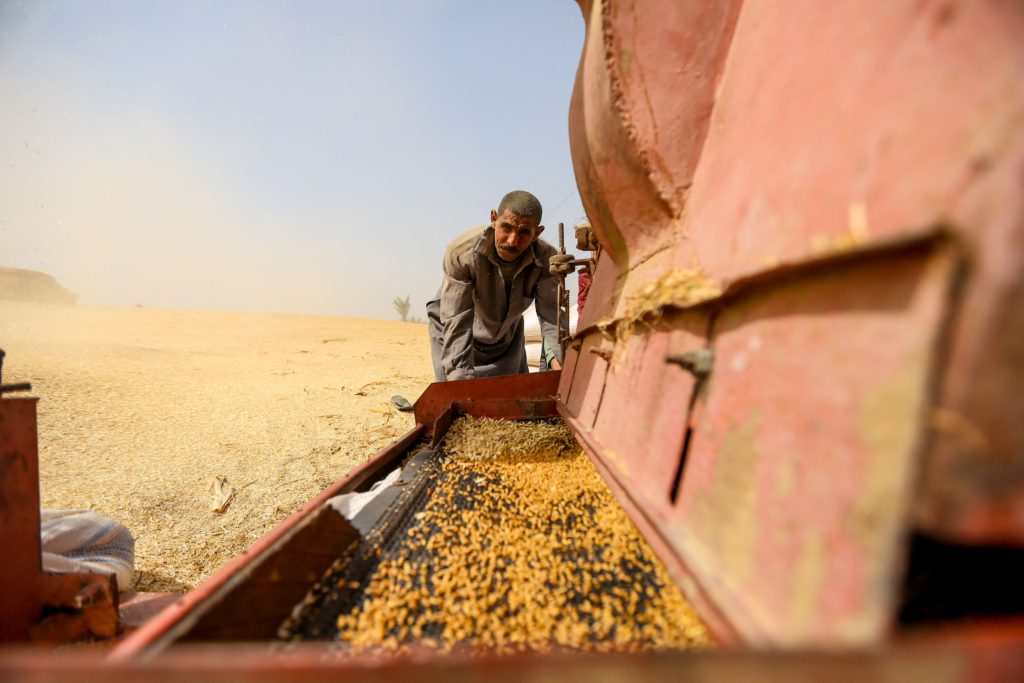Cairo – Egypt’s president Abdel-Fattah El-Sisi called on the government to offer farmers additional incentives to encourage them to deliver the largest possible amount of wheat to the Ministry of Supply and Internal Trade during local wheat supply season starting in mid-April.
Last August, the Egyptian government had set the price of supplying wheat to the government, which is responsible for the country’s subsided bread, between EGP 800 and 820 (USD 50.8-52.1) for every 150 kg.
Congressman Nour Hashem, member of the Senate Agricultural Committee, said the president’s decision is an important step for ensuring the strategic supply of wheat in Egypt.
In an interview with ANBA, he said the measure reflects the country’s effort to take care of the Egyptian farmer, offering an adequate climate to grow strategic cultures that ensure the basic needs of the population and reduce imports, which come with a high cost, in addition to avoiding risks that the exporting countries face like the Russian-Ukrainian crisis.
According to Hashem, the Egyptian agriculture is one of the most important sectors for the country’s economy and has evolved considerably over the last years thanks to a series of national projects. The initiatives are expected to ensure Egypt’s supply of major crops for both the domestic market and exports.
Rice, beans and lentils
In a bid to ensure the supply of staple products, the Central Bank of Egypt decided to extend the grace period for banks to exclude rice, beans and lentils from the cash cover by 100% for a year, to end on March 15, 2023 instead of March 15, 2022.
The Central Bank said in a statement that this comes in light of its follow-up to the needs of the Egyptian market and its keenness to facilitate import procedures to meet the needs of citizens. The exemptions were first introduced in March 2019, creating the extension period for rice, lentils and beans for a year, and was extended due to COVID-19. Due to global changes and ongoing price increases, the government decided to extend the decree for a year.
Translated by Ahmed El Nagari and Guilherme Miranda




